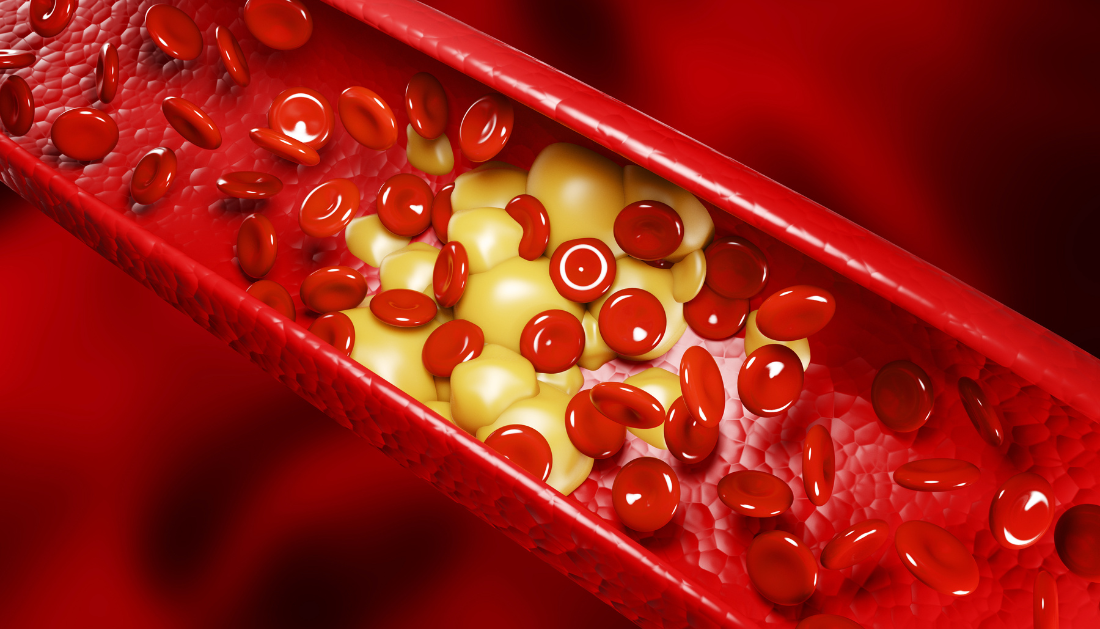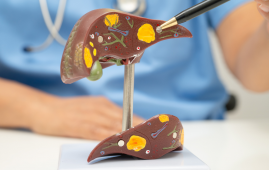

Many of us overindulged in the wrong foods over the holidays, seldom leaving the couch. A top testing expert suggests four achievable New Year’s Resolutions to aid in our recovery from holiday feasts. According to recent research, Low Density Lipoprotein (LDL) – called “bad” cholesterol because it contributes to cholesterol buildup and artery blockage – increases by 20% in the days following Christmas. This is due to the abundance of rich foods consumed over the holiday season.
Dr Avinash Hari Narayanan (MBChB), Clinical Lead at London Medical Laboratory, says: ‘Researchers at Copenhagen University Hospital and the University of Copenhagen detected this post-Christmas spike in a recent study of 2,500 people. Just like us Brits, the Danes love their Christmas roasts and creamy desserts.
‘According to the study, the chance of having high cholesterol is six times higher after the holidays. However, the study reveals that increased cholesterol levels after Christmas are just temporary, with New Year’s diets and activity routines bringing levels back down.
‘These findings are supported by London Medical Laboratory’s Cholesterol Test results, which show significantly higher levels in late December and January compared to other periods of the year.
1. Lose Weight and Balance it
‘The good news is that our top four New Year’s Resolutions can help people not only repair but also improve their health. This is especially true when combined with simple finger-prick blood tests, which can track and evaluate development by analyzing key biomarkers.
Even losing 5% of our body weight can significantly reduce our risk of chronic health disorders including heart disease, type 2 diabetes, and high blood pressure. There’s even a free NHS Weight Loss Plan App to assist Brits begin healthy eating habits, become more active, and lose weight.
People looking to enhance their fitness levels may wish to consider a heart health profile exam in conjunction with a prudent nutrition plan. These tests have been demonstrated to detect dangers to the heart’s health. They should include inflammatory and diabetes tests, which reflect how well the body balances blood sugar.
2. Return to healthier eating habits
It’s not only about eating less; it’s also about eating the correct foods. January is the month to return to healthier eating habits. Fruits and vegetables, in particular, are low in calories and fat, high in fiber, and high in vitamins and minerals. There are even spreads and yoghurts that include plant-based compounds called sterols and stanols that can lower our LDL “bad” cholesterol levels.
In addition to a healthy diet, consider a simple finger-prick cholesterol test. This test can detect the possibility of developing cardiovascular issues.
3. Get off the couch and do some exercise.
Let’s be honest. Not everyone leads a lifestyle that includes going to the gym every day. However, other resolutions, such as sitting less and moving more, are simpler to keep. Simple methods include parking farther away from the supermarket’s door and revisiting those Covid lockdown “stairobics.” According to recent research from the University of Sydney, even three 20-second quick stair climbs each day can increase fitness in as little as six weeks.
4. Stay on track
Signing up for the London Marathon is unrealistic for someone who hasn’t exercised in years. Keeping track of our progress keeps us informed and motivated. A wearable fitness tracker can assist us in our objective of being more active. It can be combined with frequent blood tests to track fitness and overall health.
‘The London Medical Laboratory’s own General Health Profile blood test can be taken at home or at one of the many drop-in clinics that offer these tests around London and nationwide in over 120 designated pharmacies and health stores.
Source: London Medical Laboratory
more recommended stories
 Fragmentome Technology Detects Early Liver Fibrosis
Fragmentome Technology Detects Early Liver FibrosisKey Points at a Glance AI-based.
 CTNNB1 Syndrome Study Explores Beta-Catenin Defects
CTNNB1 Syndrome Study Explores Beta-Catenin DefectsKey Takeaways Researchers in Spain are.
 Tuberculosis Breakthrough with Experimental Antibiotics
Tuberculosis Breakthrough with Experimental AntibioticsKey Takeaways Experimental antibiotics disrupt a.
 National Healthy Longevity Trial Receives Federal Support
National Healthy Longevity Trial Receives Federal SupportKey Summary Up to $38 million.
 Red Blood Cells Improve Glucose Tolerance Under Hypoxia
Red Blood Cells Improve Glucose Tolerance Under HypoxiaKey Takeaways for Clinicians Chronic hypoxia.
 Nanoplastics in Brain Tissue and Neurological Risk
Nanoplastics in Brain Tissue and Neurological RiskKey Takeaways for HCPs Nanoplastics are.
 AI Predicts Chronic GVHD Risk After Stem Cell Transplant
AI Predicts Chronic GVHD Risk After Stem Cell TransplantKey Takeaways A new AI-driven tool,.
 Red Meat Consumption Linked to Higher Diabetes Odds
Red Meat Consumption Linked to Higher Diabetes OddsKey Takeaways Higher intake of total,.
 Pediatric Crohn’s Disease Microbial Signature Identified
Pediatric Crohn’s Disease Microbial Signature IdentifiedKey Points at a Glance NYU.
 Nanovaccine Design Boosts Immune Attack on HPV Tumors
Nanovaccine Design Boosts Immune Attack on HPV TumorsKey Highlights Reconfiguring peptide orientation significantly.

Leave a Comment